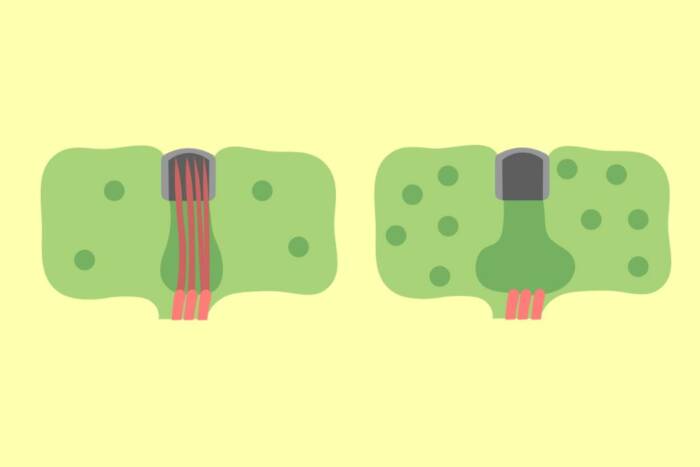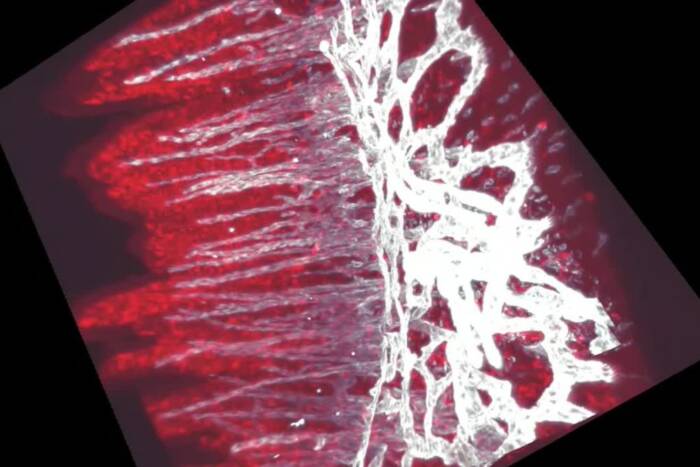Paul William Furlow
 Paul William Furlow
Paul William Furlow
Presented by Sohail Tavazoie
B.S., Michigan State University
M.S., Northwestern University
Mutations in a Mechanosensitive Channel Enable Intravascular
Metastatic Cell Survival
Paul infuses a large dose of vitality into all that he does. This is most apparent during our annual lab karaoke outings, where he accomplishes two goals: the first is to teach us non-native English speakers a rich and new vocabulary. The second is to ensure a Michigan State style celebratory intoxication, which sadly makes us all forget the flavorful words we had learned.
In my lab, Paul studied the mechanisms by which cancer cells spread — or metastasize —
to distal organs. To metastasize, cancer cells must leave the primary tumor site, enter the blood, travel to distant organs, and must squeeze and stretch through very tight blood vessels feeding into those organs. During this last step, the vast majority of cancer cells perish. However, rare cells are able to survive these traumatic forces and squeeze their way into organs where they form tumor colonies.
Until Paul’s studies, we did not know how these rare cancer cells accomplish this feat. Paul found that cancer cells activate a channel upon mechanical deformation that allows them to survive. He further showed that patients whose tumors possessed more of this channel were more likely to have their cancers metastasize. Finally, Paul showed that he could use a small-molecule drug that blocks this channel to reduce the spread of breast cancer in mice.
Paul’s work, for the first time, revealed a molecular mechanism by which cancer cells overcome this major physical barrier to metastatic spread posed by distal organs. To tackle this problem, Paul had to develop several techniques that did not previously exist in my lab since this was an entirely new area of study for us.
Paul has a number of unique traits that will ensure his continued success. He doesn’t rest until he finds the answer to a question, and he is naturally drawn to challenges. His ability to engage, communicate with, and inspire us will continue to lead him into exciting uncharted territories at the interface of biology and disease. Paul, I’m proud of all you have done and I’m sure you’ll bring the same energy and passion to your patients as you did to science. Just one bit of advice for those non-native English speaking patients: please use an interpreter.


